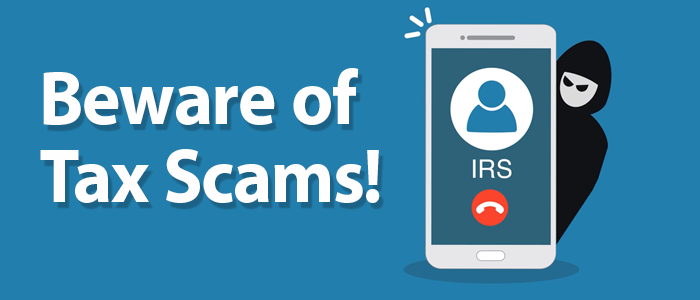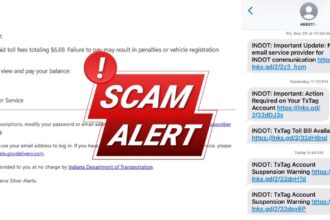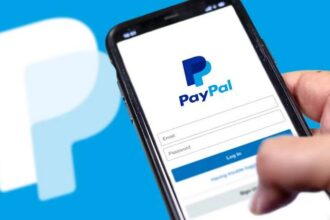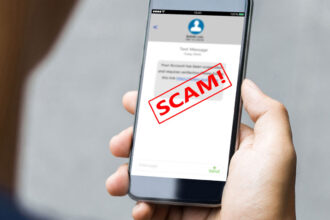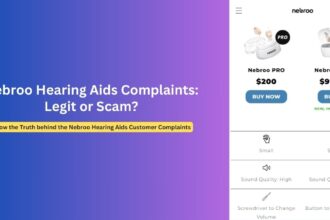In recent weeks, taxpayers across multiple states have reported receiving alarming phone calls from representatives claiming to be from “Rapid Tax Filings LLC,” threatening wage garnishment and demanding immediate payment for alleged tax debts. An investigation into these claims reveals a sophisticated scam operation designed to prey on taxpayers’ fears of IRS enforcement. This comprehensive report examines the growing threat, how to identify it, and what to do if you’ve been targeted.
Overview of the Rapid Tax Filings LLC Scam
The Rapid Tax Filings LLC operation follows a familiar pattern of tax scams that the IRS regularly warns about. Victims typically receive unsolicited phone calls or voicemails from individuals claiming to represent this entity. According to recent reports to the Better Business Bureau (BBB) Scam Tracker and social media platforms, the callers identify themselves as tax professionals working for “Rapid Tax Filings LLC” and claim to be reaching out regarding “overdue back tax filings.”
One victim from Ohio reported receiving a voicemail from a “Meredith Williams,” who claimed to be calling about “back tax debt that must be settled before the end of the month.” The caller warned about potential wage garnishment if the recipient failed to respond promptly, while simultaneously offering “extended relief programs” that could “reduce or possibly completely eliminate your overdue tax debt.”
This dual approach of creating fear and offering salvation is a hallmark of effective scam operations. The perpetrators first generate panic through threats of severe consequences, then position themselves as the solution to the very problem they’ve fabricated.
How the Scam Works: Tactics and Techniques
The Rapid Tax Filings LLC scam employs several sophisticated techniques to appear legitimate and extract money from victims:
1. Official-Sounding Language
The scammers use tax terminology and reference official-sounding procedures to create an impression of legitimacy. Terms like “wage garnishment,” “extended relief programs,” and “back tax debt” mimic the language used in genuine tax communications but are deployed in ways that create artificial urgency.
2. AI-Generated Voice Technology
Multiple victims have noted that the calls sound “AI-generated,” suggesting the scammers may be using voice synthesis technology to create consistent messaging across numerous calls. This technology allows scammers to scale their operations efficiently while maintaining quality control over messaging.
3. Strategic Targeting
Reports indicate the scammers may be specifically targeting independent contractors and self-employed individuals. One victim on Reddit noted that the scammer mentioned wage garnishments, which “would not happen in my case” as an independent contractor. This suggests the scammers lack specific knowledge about their targets’ tax situations but cast a wide net hoping to catch vulnerable individuals.
4. High-Pressure Tactics
The messages consistently emphasize immediate action, with phrases like “must be settled before the end of the month” and offers that are only available “if you call today.” This urgency is designed to push victims into making hasty decisions before they have time to verify the legitimacy of the claims.
5. Call-Back Numbers
The scammers provide specific call-back numbers, repeatedly mentioning them throughout the message. The BBB report identified (260) 529-3342 as one such number, while listing the originating call as coming from (774) 746-7014. This tactic gives an impression of transparency and accessibility while channeling victims toward their operation.
User Complaints: A Pattern Emerges
Complaints about Rapid Tax Filings LLC have appeared across multiple platforms, including:
- Better Business Bureau (BBB) Scam Tracker: A formal report was filed on March 17, 2025, detailing a voicemail received by an Ohio resident.
- Reddit: Users across multiple subreddits have reported receiving similar calls, with one poster specifically warning that “it’s definitely a scam as I am an independent contractor and they mentioned wage garnishes if I do not take care of overdue taxes, which would not happen in my case.”
- Consumer Protection Websites: Similar patterns of complaints have emerged on various consumer protection forums.
A consistent theme in these complaints is the caller’s insistence on immediate action to prevent wage garnishment, followed by promises of tax relief programs that can reduce or eliminate tax debt. Many victims report that the calls sound automated or AI-generated, adding to suspicions about their legitimacy.
Red Flags: How to Identify the Scam
Several clear warning signs distinguish this scam from legitimate tax communications:
- Unexpected Phone Calls: The IRS typically initiates contact through official mail correspondence, not through unsolicited phone calls threatening immediate consequences.
- Threats and High Pressure: Legitimate tax authorities don’t use threatening language or extreme pressure tactics to demand immediate payment.
- Too-Good-To-Be-True Offers: Promises to “completely eliminate” tax debt through special programs are classic scam indicators. While legitimate tax relief options exist, they rarely result in complete elimination of properly assessed tax debt.
- Request for Unusual Payment Methods: Though not explicitly mentioned in all reports, tax scammers often request payment through gift cards, wire transfers, or cryptocurrency – methods that legitimate tax authorities would never use.
- Lack of Written Documentation: Legitimate tax issues come with formal written notices. Scammers rely on phone calls because they leave no paper trail that could be verified.
- Mismatched Business Information: Searches for “Rapid Tax Filings LLC” reveal inconsistent information, with the company allegedly located in Massachusetts according to one report, yet using phone numbers with Indiana area codes (260).
- AI-Generated Voice Quality: Multiple victims report that the calls sound artificially generated, suggesting automation rather than genuine tax professionals.
The Broader Context: Tax Scams on the Rise
The Rapid Tax Filings LLC scam is part of a broader pattern of tax-related fraud that typically intensifies during tax season. According to IRS guidance, tax scams cost Americans millions of dollars annually and come in increasingly sophisticated forms.
Common variations include:
- IRS Impersonation Scams: Criminals directly claim to be IRS agents rather than third-party tax firms.
- Tax Credit Scams: Fraudsters promise inflated refunds through non-existent tax credits.
- Identity Theft: Scammers collect personal information to file fraudulent returns in victims’ names.
- Ghost Preparers: Unethical tax preparers who refuse to sign returns or divert refunds.
The IRS regularly updates its “Dirty Dozen” list of tax scams, warning taxpayers about the most prevalent threats. Social media platforms have become particular hotbeds for tax misinformation, with influencers sometimes promoting dubious tax strategies.
How to Protect Yourself
If you receive a call from Rapid Tax Filings LLC or any similar entity:
- Don’t Engage: Hang up immediately or don’t return the call.
- Verify Independently: If concerned about potential tax issues, contact the IRS directly through their official number (800-829-1040).
- Report the Scam: File reports with:
- The Better Business Bureau Scam Tracker
- The Treasury Inspector General for Tax Administration (TIGTA)
- The Federal Trade Commission (FTC)
- Check Your Tax Account: Create or log into your account at IRS.gov to verify if you actually have any outstanding tax issues.
- Monitor Your Credit: Watch for signs of identity theft if you’ve shared any personal information.
Final Verdict: Unequivocally a Scam
Based on all available evidence, Rapid Tax Filings LLC appears to be a fraudulent operation designed to extract money from taxpayers through fear and false promises. Multiple red flags are present:
- The operation uses high-pressure tactics inconsistent with legitimate tax communications
- The threats of wage garnishment without proper legal process are not how tax enforcement works
- The promises of complete tax debt elimination are unrealistic
- The AI-generated voice calls suggest mass automation rather than personalized tax service
- The inconsistent business information fails basic legitimacy tests
- The pattern matches known tax scam warning signs identified by the IRS
Legitimate tax resolution companies do exist, but they:
- Don’t make cold calls threatening immediate consequences
- Provide transparent documentation of their services
- Don’t promise unrealistic outcomes
- Have verifiable business credentials
- Work within established IRS programs like Offers in Compromise or Installment Agreements
What to Do If You’ve Been Victimized
If you’ve already engaged with this scam:
- If You’ve Paid Money: Contact your financial institution immediately to report fraud and potentially reverse transactions.
- If You’ve Shared Personal Information: Place a fraud alert on your credit reports and consider a credit freeze.
- Document Everything: Save voicemails, call logs, and any other evidence of the scam.
- File a Police Report: This creates an official record of the fraud.
- Contact the IRS: Report the incident and verify your actual tax status.
As tax season continues, vigilance remains essential. Remember that the IRS never initiates contact through phone calls demanding immediate payment, and legitimate tax issues always come with formal written documentation and proper legal process. By staying informed and skeptical of unsolicited tax communications, you can protect yourself from becoming the next victim of the Rapid Tax Filings LLC scam or similar operations.
This article is for informational purposes only and does not constitute legal or tax advice. If you have concerns about your tax situation, consult with a licensed tax professional or contact the IRS directly.
